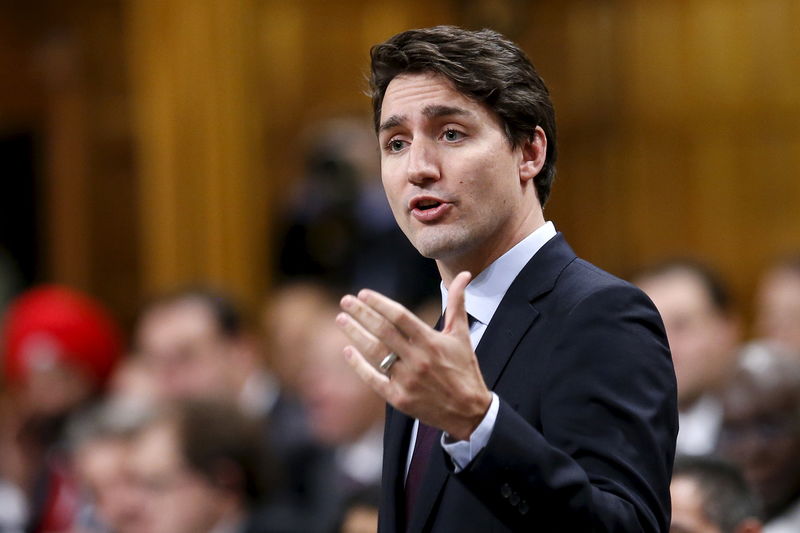(Adds details, background, quotes)
By Leah Schnurr
OTTAWA, March 17 (Reuters) - Canada should use more fiscal
measures to boost the economy rather than relying on monetary
policy, the country's prime minister said on Thursday, days
before the new government will unveil a budget expected to
feature stimulus spending.
"We should be using fiscal levers a little more and not just
expecting monetary policy to have to fix the challenge we're
in," Prime Minister Justin Trudeau said during an interview with
Bloomberg television. "I think we're approaching the limit of
the impact of monetary policy alone."
Canada's economy has been struggling with the plunge in the
price of oil, a major export, and the Bank of Canada cut
interest rates twice last year to offset the shock. So far this
year, the central bank has held rates where they are as it waits
to incorporate the government's budget measures into its
economic forecast.
Trudeau won last year's election on a vow to run budget
deficits in order to spend money on infrastructure in an effort
to boost economic growth.
The Liberal government is set to exceed the up to C$10
billion ($7.68 billion) deficit it had originally promised for
2016-17 when it releases its first budget on March 22. A Reuters
poll forecast the government will see a C$28.6 billion shortfall
in the coming fiscal year. CA/POLL
In a wide-ranging interview, Trudeau said that there was
strong discussion at the recent Group of 20 finance minister's
meeting around the question of what the limits to monetary
policy are and whether more fiscal measures are needed.
Trudeau said Canada can be an example to the world on that
debate, though he noted the country has more stability than
other regions.
Asked about whether there was a preference for a stronger or
weaker Canadian dollar, Trudeau said that for countries that try
to exert control over monetary policy or the price of their
currency, "it doesn't end well."
"The Canadian dollar will always bounce around a bit, but
there's a range in which it is comfortable and we tend to be in
that now," Trudeau said.
($1 = 1.3018 Canadian dollars)
(Editing by Chizu Nomiyama and Phil Berlowitz)
